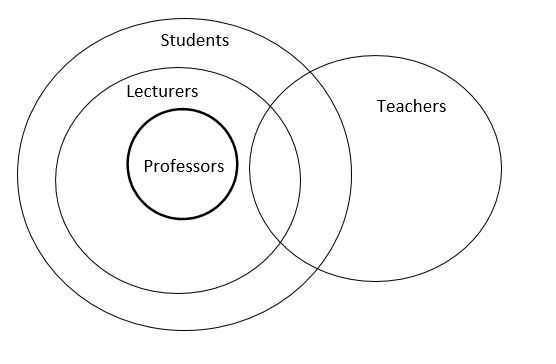Question
Statements:Some teachers are Lectures. All
professors are lecturers. All lecturers are students. Conclusions:I. Some students are teachers. II. Some lecturers are teachers. III. All lecturers are professors In each of the questions below are given three statements followed by three conclusions numbered I, II and III. You have to take the given statements to be true even if they seem to be at variance with commonly known facts. Read all the conclusions and then decide which of given conclusions logically follows from the given statements disregarding commonly known facts.Solution
Some teachers are professors (I) + All professors are lecturers (A)= Some teachers are lecturers.(I) +All lecturers are students.(A)= Some teachers are students (I) ⇒ conversion ⇒ Some students are teachers (I). Hence, conclusion I will follow. Some teachers are professors (I) + All professors are lecturers (A)= Some teachers are lecturers.(I) ⇒ conversion ⇒ Some lecturers are teachers.(I) Hence, conclusion II will also follow. All professors are lecturers (A) ⇒ conversion ⇒ Some lecturers are professors (I). Hence, conclusion III will not follow. Alternative method: 
Who among the following is known as the 'Missile Man of India'?
What penalty did SEBI impose on Jai Anmol Ambani in the RHFL case?
What is the Standard International Unit (SIU) of measurement of light (Illumination)?
In which Indian city External Affair Minister Sushma Swaraj inaugurated the Bharat-ASEAN Maitri park?
Which OTT platform partnered with the Ministry of Information and Broadcasting for the "Azadi Ki Amrit Kahaniya" initiative?
The Harshacharita is a biography of Harshavardhana, the ruler of Kannauj, composed in Sanskrit by his court poet, _____.
Which countries joined NATO in 2022, including Finland?
Chari is the dance form belongs to which state?
Which is the most Populated city in the World?
The famous Konark Sun Temple is located in which Indian state?
Relevant for Exams:


